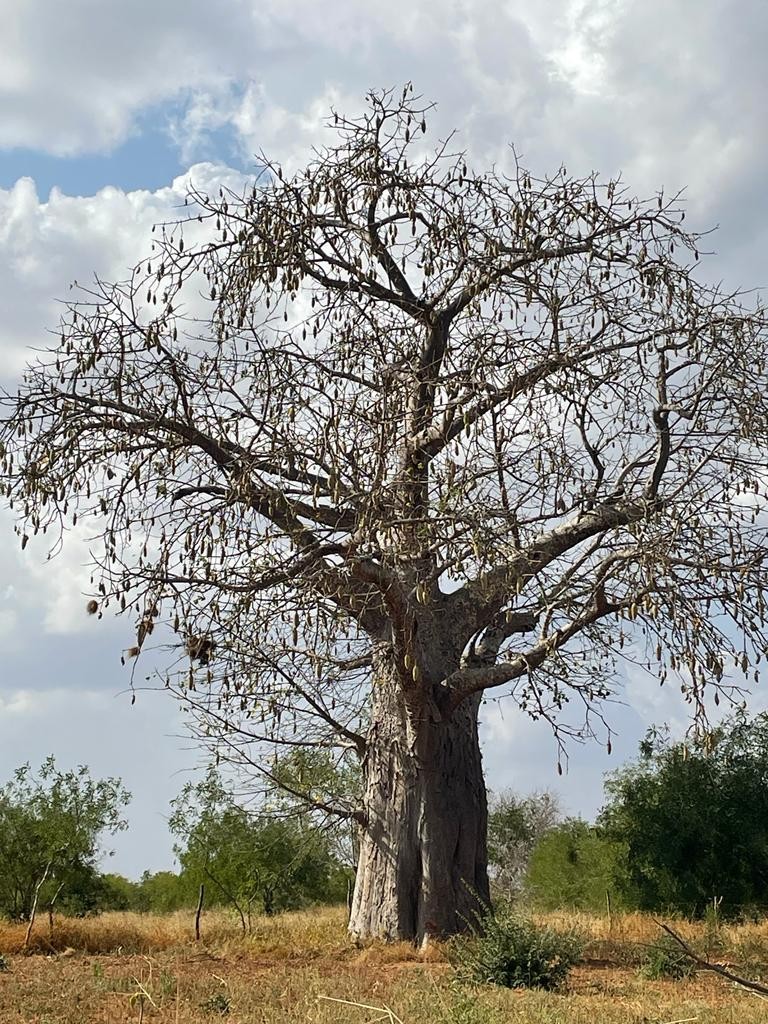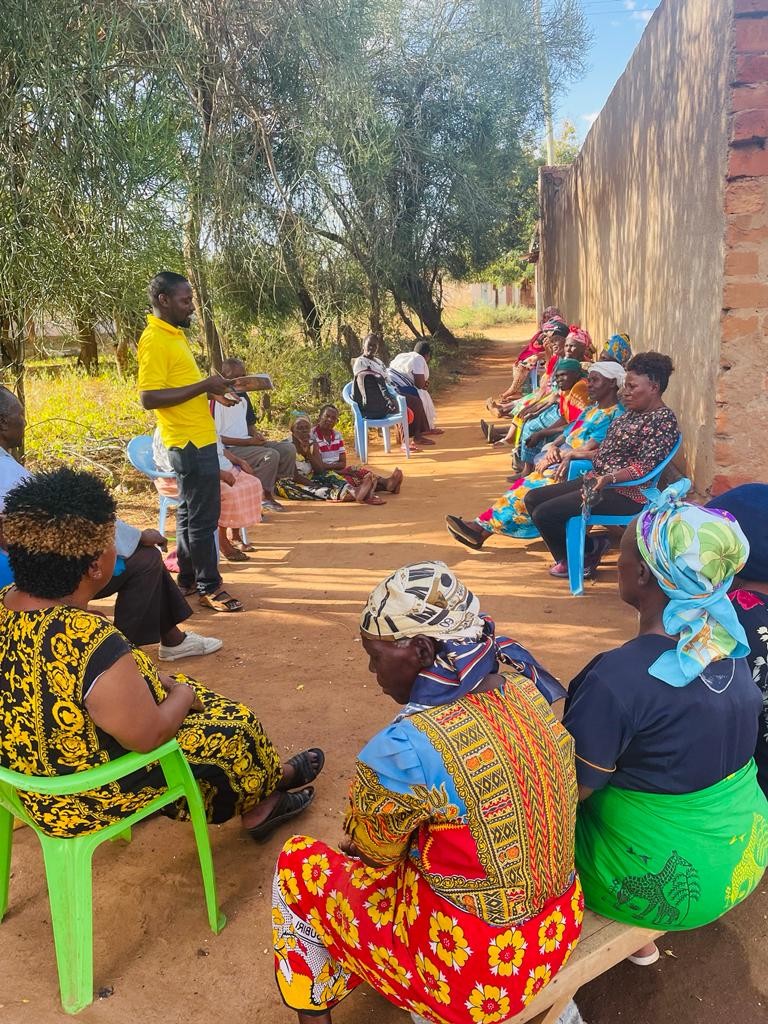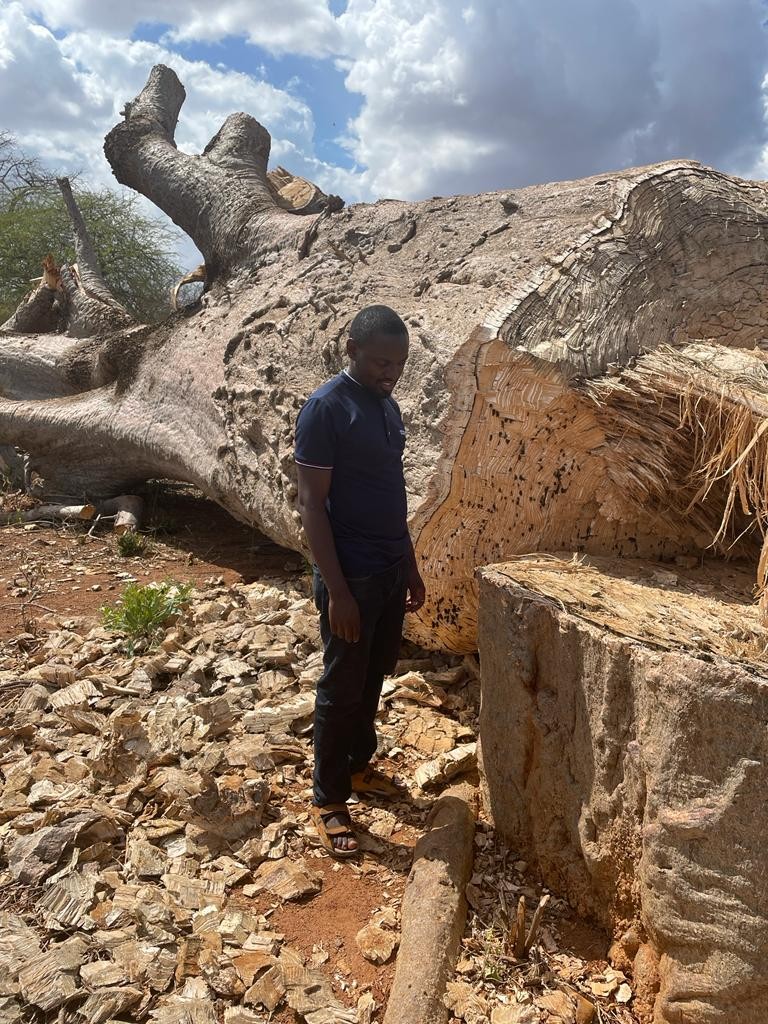-
About
- Our Work
- Get Involved
- Stay Updated
YPARD Kenya: In South Eastern Kenya, the Baobab Value Chain is Booming
By: Alphonce Munyao, YPARD Kenya.
As you travel along the Mombasa-Nairobi highway from Kenya's busy capital, the climatic conditions become a little harsher as the latitude decreases and the temperatures rise, with xerophytic plants dominating the landscape, but as you approach 200 kilometers, you start seeing some massive, upside-down looking trees. These trees are known as Adansonia digitata or just baobabs. Africa, Australia, and the Middle East are home to the baobab trees. Every part of the tree has been traditionally used as food, medicine, or the basis for clothes or household products, making it a highly valued tree in the past, with some societies referring to it as the "tree of life." Its Iron-rich leaves can be boiled and eaten like spinach. The seeds can be roasted to make a coffee alternative or pressed to generate cooking or cosmetic oil. The fruit pulp has six times the vitamin C of oranges, making it an important nutritional supplement in Africa, Europe, the United States and Canada.
Photo Credit: Alphonce Munyao.
Baobab trees are an important ecosystem component of the dry African savannas, as well as being useful for humans. Baobab trees are important to keep the soil moist, promote nutrient recycling, and prevent soil erosion. They also provide food, drink, and shelter to a diverse assortment of creatures, including birds, lizards, monkeys, insects and even elephants, that chew the bark of these trees to get water during dry periods. The baobab trees have "chiropterophilous" flowers, which means they are adapted to be pollinated by bats, in this case, the blooms are pollinated by fruit bats, that travel great distances to dine on the trees' nectar.
Despite these numerous advantages, rampant baobab tree logging continues to be witnessed in South-eastern Kenya, since many people are unaware of the nutritional and economic significance of these trees, and hence cut them down to make space for farming or other activities.
"I grew up in this area and have always been very passionate about providing an incentive for people to protect the environment and to curb the massive land degradation that is occurring, and I believe that developing the baobab value chain is the perfect strategy," Alphonce, a young environmental scientist, tells to a group of local women. To achieve this aim, the Angaza Tree Company was established, and a processing center structure has been acquired. Several women's clubs have been formed, and baobab fruit picking is currently ongoing.
Photo Credit: Alphonce Munyao.
Once the seeds have been picked, manual processing will take place, this includes removing the husks and separating the powder from the seeds with a mortar and pestle. The powder will then be well-kept and packaged for selling under optimal conditions. This will develop into a major social enterprise that aims to alleviate poverty, empower women and youth, and conserve the environment in the long run. The project is being planned as the first African Great Green Wall splinter project in Kenya, and it is inspired by the African Great Green Wall Initiative (GGW) under the auspices of the African Union. "Some areas of Kenya have the same environmental concerns that this project aims to solve, and certainly developing the baobab value chain is a fantastic method of extending the green wall of resilience to the Republic of Kenya." Said Dr Elvis Tangem, the coordinator of the African Great Green Wall at the African Union Commission during a meeting in Nairobi. If financing is obtained, this initiative will upgrade and restore the ecology while also lifting people out of poverty and eliminating starvation.
Young Professionals for Agricultural Development (YPARD) is bridging the gap that has existed in empowering young changemakers around food systems in order to develop a powerful coordinated movement of young agricultural professionals. According to the United Nations Office of the High Representative for Least Developed Countries, Landlocked Developing Countries, and Island Developing Countries, youth account for 70% of the population in Sub-Saharan Africa. However, a large majority of them lack the necessary empowerment to confront today's difficulties, and YPARD has intentionally provided this much-needed assistance.
Under YPARD Kenya, Angaza Tree Limited Company will be a cutting-edge value chain initiative promoting the economic worth of non-timber forest products and reducing the ever-increasing hunger for timber products that has fueled deforestation. Currently, 150 individuals work directly with this project in neighborhoods dispersed across 40 square kilometers. The eventual goal is to turn it into a center for value chain development for a variety of valuable dryland trees while also providing jobs for the area's youth and women.
Photo Credit: Alphonce Munyao.
About the author
Comments
No comments made yet. Be the first to submit a commentBy accepting you will be accessing a service provided by a third-party external to https://archive.ypard.net/
Get in touch
Email: [email protected]
YPARD Global Coordination UnitHosted by AGRIDEA and the Czech University of Life Sciences Prague
Lausanne, Switzerland and Prague, Czech Republic - Our Work




